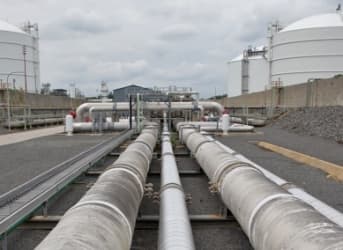One of the big winners of the historic deal between Iran and the P5+1 nations over its nuclear program will be Asia. Specifically, the deal will be a boon to Iran’s major trading partners: China, Pakistan, and India.
China is moving forward with the construction of a natural gas pipeline that will connect Iran and Pakistan. Chinese President Xi Jingping will sign the agreement when he visits Pakistan this month. Related: Top 12 Media Myths On Oil Prices
The pipeline was on hold due to U.S. sanctions on Iran. Although sanctions remain in place for now, China and Pakistan are moving forward. There are several reasons for this. First, Pakistan is in dire need of new energy sources as much of the country is critically short on natural gas for its power plants. After the pipeline is completed, Pakistan could tap into enough gas to power 4,500 megawatts of electricity. But, Pakistan also needs China’s financial backing – the pipeline will cost an estimated $2 billion, and that is just for the section inside Pakistan’s borders.
For China’s part, building the pipeline will open up Iranian gas for export. There is also the possibility of building a liquefaction terminal at the port of Gwadar, allowing Iranian gas to hit the wider global market. Gwadar is a strategic hub for China, where it already manages the port and hopes to build up a major naval presence. China plans to connect Gwadar to its western province of Xinjiang through road, rail, oil, and gas connections. The Iranian-Pakistan gas pipeline will tie in nicely to China’s strategic plans in the region. Related: Top 4 Energy Innovations On The Horizon
For Iran, obviously, the pipeline would allow it to export natural gas that could refill depleted state coffers. That would be one of many ambitious energy export deals that Iran will suddenly be able to secure, assuming sanctions are lifted. Iranian officials also visited China this week to meet with state-run oil firm Sinopec. The two sides are in talks over the expansion of the Yadavaran project, a 50,000 barrel-per-day oil field. The Iranian-Chinese energy relationship will grow enormously after the nuclear deal. Related: Saudi Aramco’s Clever Strategy To Scoop Up America’s Best Energy Talent
Moreover, India plans on benefiting from Iran’s new rapprochement with the West. India, in desperate need of energy, will ramp up its imports of Iranian oil once sanctions are lifted. Never exactly comfortable with the sanctions on Iran, India was under enormous pressure from the U.S. to comply. If a nuclear deal between Iran and the West is finalized, that pressure may go away and India can resume its oil relationship with Iran.
The U.S. is hailing the agreement as a step forward for international peace. China, Pakistan, and India are also pleased with the outcome since it will open up vast new economic opportunities.
By Charles Kennedy for Oilprice.com
More Top Reads From Oilprice.com:
- EIA Changes Tack On Latest Oil Crisis
- Why The Oil Price Collapse Is U.S. Shale’s Fault
- Media Spin On Oil Prices Running Out Of Fuel

















